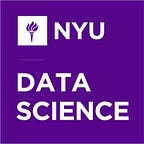CDS Members Present at Academic Data Science Coast to Coast Seminar Series
CDS faculty fellow Angela Radulescu and CDS affiliated professor (and professor of mathematics & atmosphere/ocean science at NYU’s Courant Institute of Mathematics) Laure Zanna are participating in the Data Science Coast to Coast (DS C2C) seminar series. The series is jointly hosted by seven academic data science institutes including Berkeley Institute for Data Science, Ken Kennedy Institute at Rice University, Michigan Institute for Data Science, the eScience Institute at the University of Washington, Stanford Data Science, and the Institute for Data Intensive Engineering and Science.
Angela gave her talk, “Towards Naturalistic Task Representation in Health and Disease” on March 17, 2021. Angela’s presentation centered around how humans learn to make decisions from experience. She studies how we learn to organize our experiences into internal representations that enable flexible behavior, varying from simple decision-making to goal-centric action in structured settings. In the first part of her talk, Angela focused on how representation learning depends on selective attention as a constraint for the dimensionality of environments that we learn from. By modeling the dynamics of human eye-tracking data, she showed how attention is directed towards features of our environment that we infer to be relevant for the task at hand. Angela went on to present ongoing research that leverages virtual reality (VR) in conjunction with eye-tracking to analyze representation learning in naturalistic settings. She concluded with a discussion of how predictive modeling of behavior in VR may provide insight into cognitive factors that affect mental health.
Angela’s research combines computational approaches — in particular reinforcement learning and Bayesian inference — with behavioral experiments, eye-tracking, and neuroimaging. Her current focus is on developing methods to study goal-directed learning in virtual reality (VR).
Laure will give her presentation at the seminar on “Blending Machine Learning and Physics to Improve Climate Models” on June 16, 2021. In her talk, she will describe how numerical simulations of the governing laws of fluid motions are used for climate projections, which inform policy makers. Due to the computational cost of these simulations, many small processes such as cloud, turbulence and mixing are not well captured leading to uncertainty in projections of temperature and rainfall. In her talk, she will demonstrate that leveraging different machine learning algorithms (e.g., convolutional neural networks and relevance vector machine) with imposed physical constraints is a better approach to deepen our understanding of these small scale processes and improve their representation in climate models. Laure and her team’s results pave the way to the discovery of new physics from data as well as the improvement of numerical simulations of oceanic and atmospheric flows.
Laure’s research focuses on the dynamics of the climate system. Her ultimate objective is to study the influence of the ocean on climate change on both local and global scales. She is also leading a five-year international project, M²LInES (Multiscale Machine Learning In Coupled Earth System Modeling), whose aim is to improve climate projections using scientific machine learning. M²LInES is part of Schmidt Futures’ recently launched Virtual Earth System Research Institute.
For more information on the Data Science Coast to Coast seminar series, please visit the DS C2C website.
By Ashley C. McDonald
